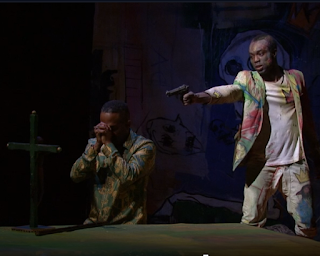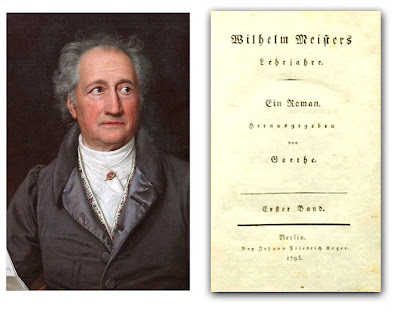Changing Interpretations Over Time: A C Swinburne

The Victorian poet Algernon Charles Swinburne (1837-1909) was educated at Eton and Oxford, was friendly with the Rossettis, and even lived with Dante Gabriel Rosetti at one time; certainly part of the of the Pre-Raphaelite circle.
He might offer a contradictory perspective to some of the earlier ideas we have seen on Hamlet.
A. C. Swinburne: from 'A Study of Shakespeare' 1880
... it should be plain to any reader that the signal characteristic of Hamlet's inmost nature is by no means irresolution or hesitation or any form of weakness, but rather the strong conflux of contending forces. That during four whole acts Hamlet cannot or does not make up his mind to any direct and deliberate action against his uncle is true enough; true, also, we may say, that Hamlet had somewhat more of mind than another man to make up, and might properly want somewhat more time than might another man to do it in; but not, I venture to say in spite of Goethe, through innate inadequacy to his task and unconquerable weakness of the will; not, I venture to think in spite of Hugo, through immedicable scepticism of the spirit and irremediable propensity to nebulous intellectual refinement. One practical point in the action of the play precludes us from accepting so ready a solution of the riddle as is suggested either by the simple theory of half-heartedness or by the simple hypothesis of doubt. There is absolutely no other reason, we might say there was no other excuse, for the introduction or intrusion of an else superfluous episode into a play which was already, and which remains even after all possible excisions, one of the longest plays on record. The compulsory expedition of Hamlet to England, his discovery by the way of the plot laid against his life, his interception of the King's letter and his forgery of a substitute for it against the lives of the King's agents, the ensuing adventure of the sea-fight, with Hamlet's daring act of hot-headed personal intrepidity, his capture and subsequent release on terms giving no less patent proof of his cool-headed and ready-witted courage and resource than the attack had afforded of his physically impulsive and even impetuous hardihood - all this serves no purpose whatever but that of exhibiting the instant and almost unscrupulous resolution of Hamlet's character in time of practical need. But for all that he or Hamlet has got by it, Shakespeare might too evidently have spared his pains; and for all this voice as of one crying in a wilderness, Hamlet will too surely remain to the majority of students, not less than to all actors and all editors and all critics, the standing type and embodied emblem of irresolution, half-heartedness, and doubt.
A. C. Swinburne: from 'A Study of Shakespeare' 1880
... it should be plain to any reader that the signal characteristic of Hamlet's inmost nature is by no means irresolution or hesitation or any form of weakness, but rather the strong conflux of contending forces. That during four whole acts Hamlet cannot or does not make up his mind to any direct and deliberate action against his uncle is true enough; true, also, we may say, that Hamlet had somewhat more of mind than another man to make up, and might properly want somewhat more time than might another man to do it in; but not, I venture to say in spite of Goethe, through innate inadequacy to his task and unconquerable weakness of the will; not, I venture to think in spite of Hugo, through immedicable scepticism of the spirit and irremediable propensity to nebulous intellectual refinement. One practical point in the action of the play precludes us from accepting so ready a solution of the riddle as is suggested either by the simple theory of half-heartedness or by the simple hypothesis of doubt. There is absolutely no other reason, we might say there was no other excuse, for the introduction or intrusion of an else superfluous episode into a play which was already, and which remains even after all possible excisions, one of the longest plays on record. The compulsory expedition of Hamlet to England, his discovery by the way of the plot laid against his life, his interception of the King's letter and his forgery of a substitute for it against the lives of the King's agents, the ensuing adventure of the sea-fight, with Hamlet's daring act of hot-headed personal intrepidity, his capture and subsequent release on terms giving no less patent proof of his cool-headed and ready-witted courage and resource than the attack had afforded of his physically impulsive and even impetuous hardihood - all this serves no purpose whatever but that of exhibiting the instant and almost unscrupulous resolution of Hamlet's character in time of practical need. But for all that he or Hamlet has got by it, Shakespeare might too evidently have spared his pains; and for all this voice as of one crying in a wilderness, Hamlet will too surely remain to the majority of students, not less than to all actors and all editors and all critics, the standing type and embodied emblem of irresolution, half-heartedness, and doubt.
What are the key ideas in Swinburne's argument? Summarise them in your own words.
Might any still have resonance today? Why/not? Give examples from Hamlet to support your ideas. How does this compare with some of the perspectives that we have read previously?
Is there a memorable, standout phrase?



Comments
Post a Comment